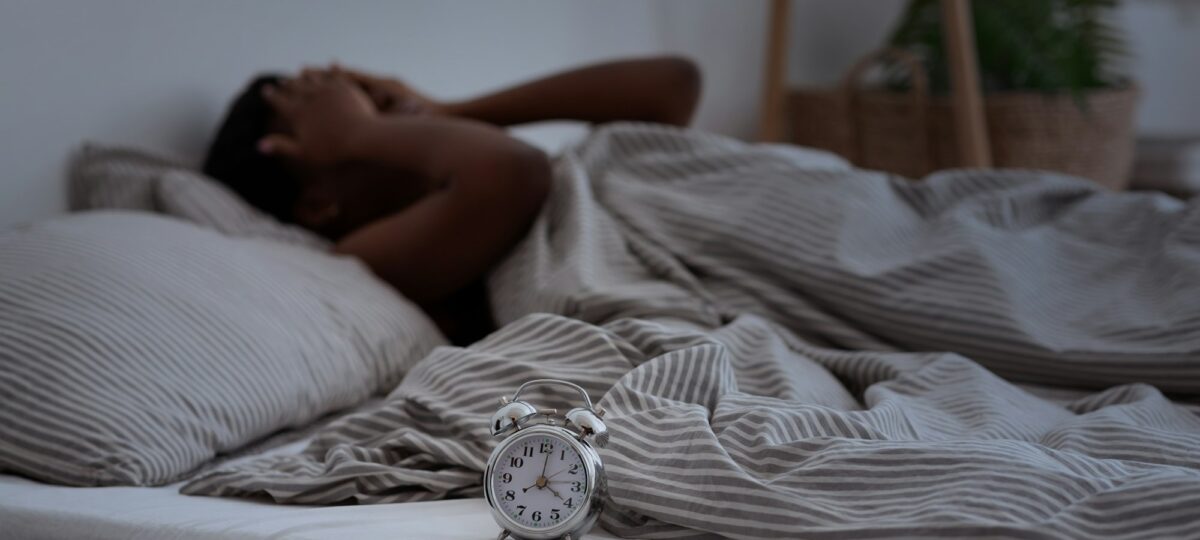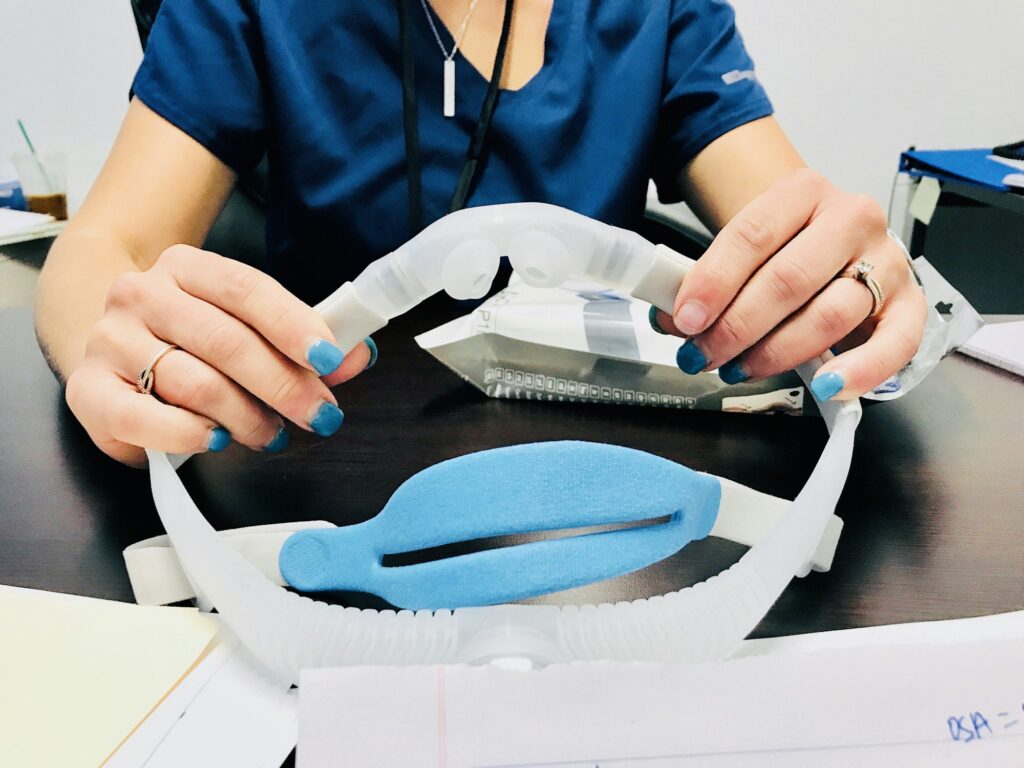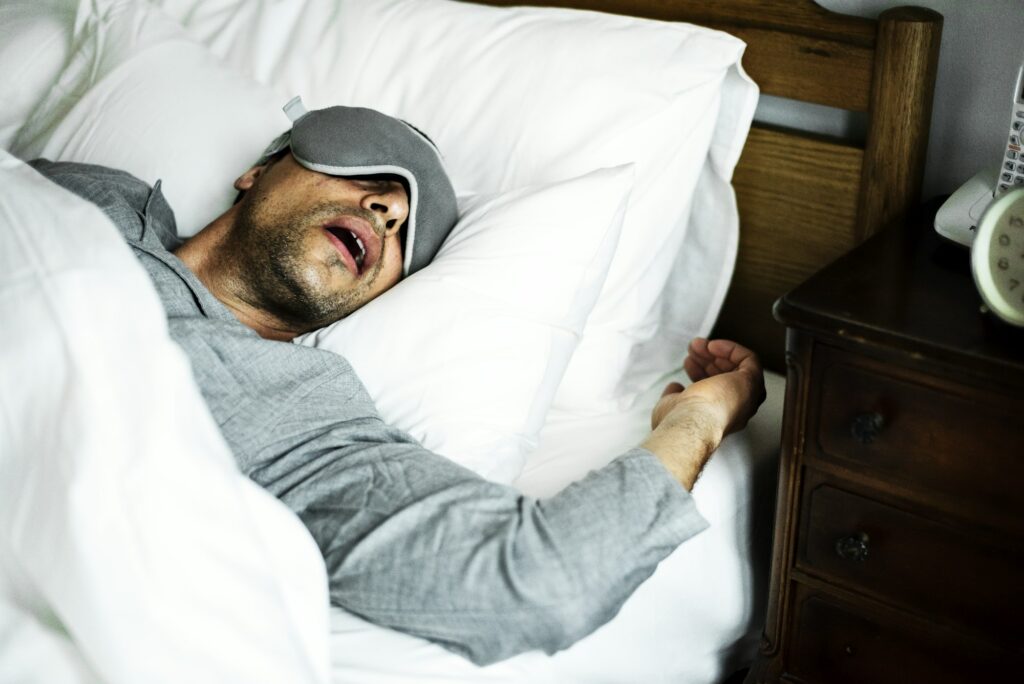Every purchase made online is encrypted with a high level of security you’ve come to expect. Your private information is never shared nor sold, so you can buy with confidence. You can also visit our store if you are in the St. Louis area.

Estimated reading time: 9 minutes
Today we are going to be discussing the Understanding of Sleep Apnea. Sleep. It’s something we all need, yet for many, it remains elusive. In today’s fast-paced world, where stress levels are high and schedules are tight, getting a good night’s sleep can feel like a luxury. But for some, sleep isn’t just a matter of inconvenience; it’s a serious health concern. One such condition that affects millions worldwide is sleep apnea, but it’s just one among a spectrum of sleep disorders that can disrupt our rest and impact our overall well-being.
Table of Contents
What Is Sleep Apnea – Understanding What It Is?
Let’s start with sleep apnea, a disorder characterized by pauses in breathing during sleep. These pauses, known as apneas, can last from a few seconds to minutes and may occur multiple times throughout the night.
Related Links
There Are Three Main Types Of Sleep Apnea:
- Obstructive Sleep Apnea (OSA): This is the most common form of sleep apnea, occurring when the muscles in the throat relax excessively, causing the airway to collapse or become blocked during sleep.
- Central Sleep Apnea (CSA): Unlike OSA, CSA occurs when the brain fails to send the proper signals to the muscles that control breathing.
- Complex Sleep Apnea Syndrome (Treatment-Emergent Central Sleep Apnea): This is a combination of both obstructive and central sleep apnea. It often starts as obstructive sleep apnea but develops central sleep apnea features over time, especially with the use of continuous positive airway pressure (CPAP) therapy.
Symptoms And Effects
Sleep apnea can have a range of symptoms, including loud snoring, gasping for air during sleep, morning headaches, irritability, and excessive daytime sleepiness. If left untreated, it can lead to serious health problems such as high blood pressure, heart disease, stroke, diabetes, and even sudden death during sleep.
Moreover, sleep apnea doesn’t just affect the individual suffering from it. It can also disrupt the sleep of partners or roommates due to loud snoring or abrupt awakenings during the night.
Diagnosis And Treatment
If you suspect you or a loved one may have sleep apnea, it’s essential to seek medical attention. A healthcare provider will typically conduct a thorough evaluation, which may include a sleep study (polysomnography) to monitor your breathing, brain activity, heart rate, and other vital signs during sleep.
Treatment options for sleep apnea vary depending on the type and severity of the condition. They may include lifestyle changes such as weight loss, positional therapy, or the use of oral appliances to keep the airway open during sleep. In more severe cases, continuous positive airway pressure (CPAP) therapy, which involves wearing a mask that delivers pressurized air to keep the airway open, may be recommended. However, recent discussions have arisen regarding potential hazards associated with CPAP machines and subsequent lawsuits against manufacturers.

Plaintiffs claim that certain CPAP machines have design flaws that may lead to health complications or injuries, such as lung damage, respiratory issues, or even cancer due to exposure to harmful materials. Some lawsuits allege that manufacturers failed to adequately warn consumers about potential risks associated with CPAP therapy, leaving users unaware of the potential hazards they may face.
Fortunately, several alternatives to CPAP therapy may be suitable for managing sleep apnea and improving sleep quality. Here are some alternatives worth considering:
- BiPAP (Bi-level Positive Airway Pressure) Therapy: BiPAP machines deliver two levels of air pressure: a higher pressure during inhalation and a lower pressure during exhalation. This may be more comfortable for some individuals, particularly those who have difficulty exhaling against the continuous pressure of a CPAP machine.
- AutoPAP (Automatic Positive Airway Pressure) Therapy: AutoPAP machines automatically adjust the pressure levels throughout the night based on the individual’s breathing patterns. This may provide a more personalized and comfortable treatment experience compared to fixed-pressure CPAP therapy.
- Oral Appliances: Oral appliances, also known as mandibular advancement devices, are custom-made mouthpieces that are worn during sleep to reposition the jaw and tongue, helping to keep the airway open. These devices are often recommended for individuals with mild to moderate obstructive sleep apnea or those who prefer an alternative to CPAP therapy.
- Positional Therapy: Some individuals with sleep apnea experience more frequent breathing disruptions when sleeping in certain positions, such as on their back. Positional therapy involves using devices or techniques to encourage sleeping in a side or semi-prone position, which may reduce the severity of sleep apnea symptoms.
- Weight Loss and Lifestyle Modifications: Obesity is a significant risk factor for sleep apnea, and losing weight through diet and exercise can often improve or even resolve symptoms in some cases. Additionally, avoiding alcohol and sedatives, quitting smoking, and establishing a regular sleep schedule may also help alleviate sleep apnea symptoms.
- Surgery: In some cases, surgical intervention may be recommended to address anatomical abnormalities contributing to sleep apnea, such as enlarged tonsils, deviated septum, or excess tissue in the throat. Surgical options may include uvulopalatopharyngoplasty (UPPP), tonsillectomy, septoplasty, or maxillomandibular advancement surgery.
- Hypoglossal Nerve Stimulation: This is a relatively new treatment option for sleep apnea that involves implanting a device that stimulates the hypoglossal nerve, which controls the movement of the tongue and other muscles involved in airway patency. The device is activated during sleep to help keep the airway open.
- Acupuncture And Alternative Therapies: Some individuals may find relief from sleep apnea symptoms through alternative therapies such as acupuncture, yoga, or meditation. While more research is needed to confirm their effectiveness, these approaches may offer complementary benefits in managing sleep disorders.

It’s essential to consult with a healthcare provider to determine the most appropriate treatment approach for your individual needs and preferences. A comprehensive evaluation, including a sleep study and assessment of medical history and lifestyle factors, can help guide treatment decisions and optimize outcomes in managing sleep apnea.
Other Common Sleep Disorders
While sleep apnea is perhaps one of the most well-known sleep disorders, there are many others that can also disrupt our rest and affect our health. Some of these include:
- Insomnia: Characterized by difficulty falling asleep, staying asleep, or waking up too early and not being able to fall back asleep, insomnia can be acute or chronic and can have a variety of causes, including stress, anxiety, depression, or medical conditions.
- Restless Legs Syndrome (RLS): This neurological disorder causes an irresistible urge to move the legs, often accompanied by uncomfortable sensations such as tingling, burning, or itching. Symptoms typically worsen at night and can significantly disrupt sleep.
- Narcolepsy: Narcolepsy is a chronic neurological disorder characterized by excessive daytime sleepiness and sudden attacks of sleep, known as sleep attacks. People with narcolepsy may also experience cataplexy (sudden loss of muscle tone), sleep paralysis, and hallucinations when falling asleep or waking up.
- Parasomnias: These are abnormal behaviors or movements that occur during sleep, such as sleepwalking, sleep talking, night terrors, or teeth grinding (bruxism). Parasomnias can disrupt sleep for both the individual experiencing them and their bed partner.
The Importance Of The Right Mattress
It is crucial to keep in mind that the mattress is much more than a simple piece of furniture in your room, in fact, it turns out to be a long-term investment, as it contributes to your health, quality of life and well-being, which is why its choice should be made carefully. conscious way.
Here Are 6 Reasons About The Importance Of A Good Mattress For Your Health:
Your bedroom is a refuge for rest, relaxation and to recharge your batteries, where the mattress is the key element to be able to enjoy the complete experience, hence the great importance of choosing appropriately.
1. HELP YOU SLEEP AND REST BETTER – A quality mattress is designed to provide adequate support to your entire body and optimal comfort, this translates into a deeper and more restful sleep, since you do not interrupt your rest to find a comfortable sleeping position, in addition to the discomfort muscles and pain disappear.
2. REDUCES STRESS LEVELS – Poor, low-quality sleep significantly increases stress levels, therefore, a comfortable and adequately supportive mattress helps reduce tension in your body and mind, allowing you to completely relax during the night.
3. PROMOTES GOOD POSTURE – Another reason for the importance of having a good mattress for your health is to adopt a correct posture when sleeping, since a poor quality bed can improperly align your spine. Instead, a proper mattress provides even support to your pressure areas, this not only prevents aches and pains, but also helps maintain healthy posture.
4. PREVENTS ALLERGIES – Conventional mattresses tend to accumulate dust, mites and allergens over time, opting for a mattress with hypoallergenic properties helps reduce exposure to these factors and, consequently, prevent allergic reactions, respiratory problems and skin irritations.
5. AVOID BACKPAINS – The importance of having a good mattress for your health also lies in preventing pain in the back and other areas of the body, since an inadequate bed increases this type of discomfort. A mattress with the latest in technology has the quality of distributing the weight of the body evenly, reducing pressure on specific points of the body, including the back, thus avoiding discomfort in said area.
6. IT ENHANCES SLEEP QUALITY – A mattress with the appropriate qualities makes it easier for you to access the deepest and most restorative phases of sleep, which improves brain health, cognitive function, and cellular regeneration. In addition to the fact that deep and restful sleep is also associated with greater resistance to diseases and better cognitive ability, therefore, the quality of your mattress has a direct impact on your rest.
Choose The Right Mattress For You
When choosing a mattress, it is important to consider your physical build, your preferences for firmness and support, the durability and quality of the mattress, and your budget. There are different types of mattresses, such as memory foam, spring, and latex, each with different characteristics in terms of firmness, support, and pressure-relieving ability. Testing the mattress before buying it and getting expert advice can help you make the best decision for your well-being.
Contact STL Beds Now
You can also contact us by filling out the form below. Make sure to fill in as many fields as possible so we can respond to you with the most accurate information!
